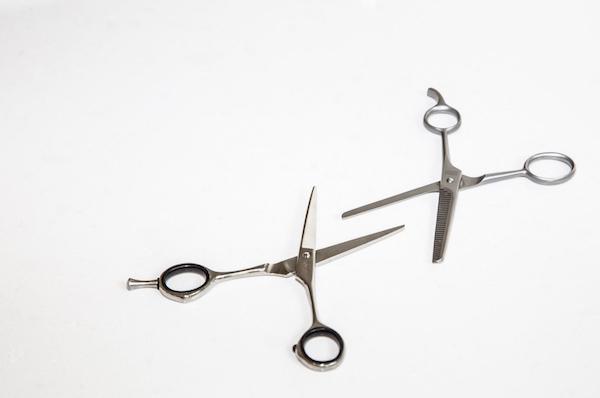 By the time we reach 50, 80% of men and 40% of women will experience some hair loss.
By the time we reach 50, 80% of men and 40% of women will experience some hair loss.
Hair loss isn’t just common; it’s the norm.
But even though it’s something that almost all of us will experience at one point in our lives, hair loss is still a taboo topic.
Because it’s such a hush-hush topic, many of us don’t know what to say to a friend or loved one who’s experiencing hair loss.
But saying the right thing can go a long way in helping hair loss sufferers deal with all of the emotional baggage that comes with this new phase in their life.
Here are 11 things do, say, and not say to someone who is experiencing hair loss.
1. NEVER out someone going through hair loss
If someone isn’t ready to talk to you about their hair loss, don’t force them.
Coming to terms hair loss takes different amounts of time for different people.
Respect that, and wait for your friend to come to you.
If they aren’t ready to talk about hair loss with you and you push the issue, your friend or loved one could feel like they’re being shamed or forced to talk about something that they aren’t ready to discuss with you yet.

2. Prepare yourself to react appropriately to the news
Seeing a friend who’s experiencing hair loss for the first time can come as a shock.
Your friend might look sick, she may have lost significant patches hair, or he may have lost all of his hair altogether.
The first time you see a friend that’s losing hair can be upsetting for any number of reasons, but you should try not to let your emotions get in the way of what your friend is experiencing.
This isn’t the time to deal with your emotions and past experiences with hair loss.
When a friend tells you about their loss, you should be prepared to listen and be supportive.
No matter how emotional you feel about the situation, remember that it’s 10x more emotional for your friend. And, more likely than not, she’s already going to be self-conscious about your reaction.
Try and empathize with whatever emotions your friend is expressing. If he’s sad, be sad with him. If she’s upbeat and wants to act normal, follow her lead.
Prepare yourself emotionally for that first conversation so that when the time comes, you can be there for your friend.
3. Acknowledge their grief
Hair loss can occur for any number of reasons: chemotherapy treatments, alopecia, work stress, post-pregnancy stress, and even aging.
In fact, it’s one of the most common health concerns of adults in America.
But just because hair loss is common, that doesn’t mean it’s an easy thing for people to handle.
Chemotherapy patients sometimes describe their hair falling out as feeling like they’re walking around with no clothes on. They feel naked and exposed. Just like with a lot of big life changes, many people experience some form of grief when they start losing their hair.
Hair loss doesn’t just mean having-less-hair, it can feel like losing a part of ourselves: our youth, our beauty, our health.
And when you’re dealing with an illness or stress, it can feel superficial to worry about losing your hair. But it isn’t.
Acknowledge your friend’s loss and let them know that it’s okay to feel whatever they’re feeling.
 4. Don’t force people experiencing hair loss to act bright and sunny
4. Don’t force people experiencing hair loss to act bright and sunny
When someone is suffering from hair loss for the first time, don’t expect them to act cheerful.
Going through hair loss is hard, and while a can-do attitude is helpful, you can’t expect someone to have that attitude right away.
That’s why saying things like “It will grow back soon” can make people feel like you’re disregarding their feelings and emotions.
It took a lot of courage for your friend to come and talk to you about losing her hair and she’s coming to you for support, not to tell her how to feel.
There will be plenty of time to talk about wigs, offer positive affirmations, or look into medical solutions later. The first and most important thing is that you help your friend emotionally grapple with her hair loss however she chooses.
5. Do ask them how they’re doing
Even though you think you’re being helpful by asking questions or offering words of encouragement, your friend might not want that right now.
People deal with hair loss in different ways, and it’s crucial that you understand what your friend needs before offering any support.
Some people might come to you with emotional concerns, like feeling ‘less of woman,’ or they might just want you to sit and listen.
Your friend will tell you what time of support she needs, just make sure you’re paying attention, and you’ll be able to figure it out.

6. Laugh at your friend’s hair loss jokes!
Humor, especially dark humor, is a common coping mechanism for anyone experiencing loss, so go with it!
Jokes are a great way to deal with awkwardness, defuse tension, and make light of a difficult situation (in a good way).
Even if your friend’s jokes make you feel awkward, try your best to laugh with them. A simple “that was really funny!” or “I see what you did there!” can go a long way.
Just make sure you're not the one telling the jokes. Trying to make similar jokes, no matter how well-intentioned they are, can come off as offensive.
Let your friend take the lead on this one, even if you’re used to being the funny one.
7. Compliment your friend’s wigs, hats, or shorter locks
The most important thing is that your friend knows that, no matter how much hair she does or does not have, she’s still beautiful.
Regardless of whether or not your friend decides to go bare, wear a wig, or cover her head with a scarf, they’re still your beautiful friend.
Support your friend no matter how they decide to deal with their hair loss.
8. (Subtly) send them hair loss inspiration
We don’t see many examples of women and men experiencing hair loss in popular culture, so it can be difficult for people experiencing hair loss to find a role model that they can relate to.
Once you’ve had an initial conversation about your friend’s hair loss, send them some encouragement in the form of blog posts and Pinterest boards that are written by strong women who have positive attitudes about their experiences with hair loss.
Unfortunately, we live in a society that associates thick hair with femininity and power. Giving your friend examples of people who have experienced hair loss and come out more confident than ever can go a long way towards helping her handle her new look.

9. Offer to “take” your friend wig shopping online
Going to a large wig store or wig salon can be scary.
Trying on wigs in public is often difficult for people who are new to hair loss. Some chemotherapy patients have even described the situation as akin to walking down the sidewalk without any pants on.
Trying on wigs in the comfort of your own home where no one is there to “stare” at your friend’s head can be a whole lot easier.
Order some wigs online and make sure they’re returnable.
Then buy a bottle of wine, rent a good movie, and head on over to your friend’s house. That way you can spend the night gossiping, laughing, and experimenting with new looks.
10. Offer some hair loss solutions
If your friend asks for advice on what to do or how to deal with her hair loss, be ready with actionable, simple solutions and suggestions.
This isn’t the time to talk about medical treatments or wig purchases, be prepared ideas your friend can implement today.
Here are some quick tips for women who are just starting to go through hair loss:
- Blow-dry your hair then flip your part to the other side of your head to create volume.
- When blow-drying, air-dry first and then blow-dry only on the cool setting, and use your fingers instead of a hard brush to prevent pulling and breakage.
- Suggest trying out a shorter, or curlier haircut, that will add volume.
- If your friend has a lighter hair color, suggest dying their hair darker. Dark hair looks thicker than light hair.
- Alternately, you could suggest that your friend highlight their hair to be the same color as their scalp to disguise their thinning hair.
- Teach your friends how to use root lifters and mouse to give extra their hair extra volume.
11. Be there for your friend!
Above all, you need to be there for your friend while they’re experiencing hair loss.
Hair loss and hair loss recovery is a long road, and your friend will need support every step of the way.
No matter where your friend is at on their journey, be a good friend and make yourself available for phone calls, crying sessions, and late-night girl talk.
If you ever experience hair loss, you would want your friends to be there for you.
Want to learn more about hair loss? Check out this post on why you should buy a wig before chemotherapy.





